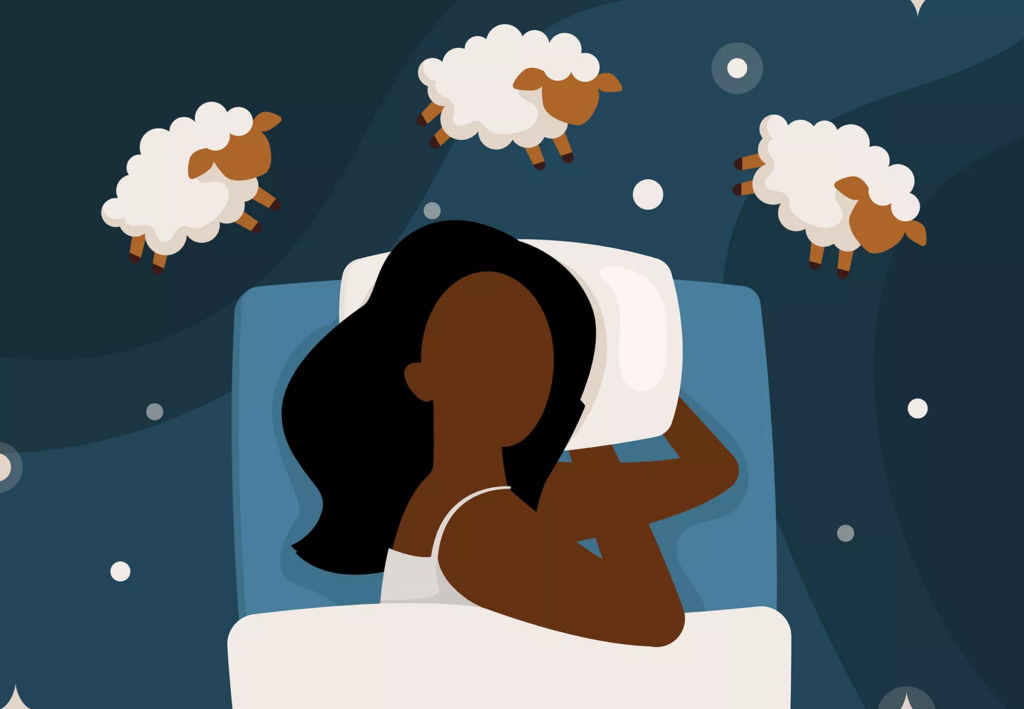
Image Soruce: (Cleveland Clinic, 2024)
We all love sleep—or at least the idea of it. But have you ever noticed how off you feel when you do not get enough? A bad night’s sleep can make you moody, stressed, grummpy and just not fun to be around, while a good night leaves you feeling happy and ready to take on the day. Ever just got mad at someone over something small or struggled to think straight after a rough night? That is your brain running low on sleep. Sleep and mental health go hand in hand. When you do not get enough rest, everything feels harder—stress hits harder, focus slips, and emotions get out of control. But when you sleep well, you think more clearly, handle problems better, and feel more like yourself. Let’s break down why sleep matters and how to start waking up feeling truly rested.
📝 Quick Pre-Assessment: What Do You Think?
Before jumping in, answer these quick questions (just a couple of sentences each):
1. How do you feel after a bad night’s sleep?
2. Have you ever noticed your stress levels go up when you don’t sleep well?
3. What’s one thing you think could help you sleep better?
Jot your answers down—you’ll come back to them later.
🧠 Key Terms (A.K.A. Things That’ll Make Sense Soon)

Image Source: (Ananda AI, 2025.)
Sleep Deprivation – Not getting enough sleep, which can cause brain fog, stress, and mood swings.
Emotional Regulation – How your brain keeps emotions in check.
Cognitive Function – Your ability to think, remember, and make decisions.
Why Sleep Matters for Mental Health

Image Source: (AARP, 2025)
Sleep is not just about resting your body; it’s how your brain resets itself. When you do not get enough, your brain struggles to keep up, making everything feel harder than it should. Bad sleep can increase stress, make you more emotional, and mess with your ability to think clearly. It is also linked to anxiety and depression, meaning sleep and mental health are more connected than you might realize. Good sleep keeps your brain sharp, helps with decision-making, and makes it easier to handle emotions. Ever had one of those days where everything feels harder just because you did not sleep well? That is not a coincidence—it is your brain struggling to keep up (Milojevich & Lukowski, 2016).
Read more about it here:
- Read:
Learning Activity: Track Your Sleep & Mood

Image Source: (The Purple Vine, 2025.)
For the next five days, track your sleep habits:
- How many hours did you sleep?
- Did you wake up feeling rested? (Rate 1-5)
- How was your mood the next day?
- Did you struggle with focus or memory?
At the end of the week, take a look at your patterns. Did getting more sleep improve your mood? Were you able to focus and get more done? What small changes made the biggest difference? If your sleep did not improve, what might be getting in the way? Use what you learned to fix your routine and find what works best for you.
Short Answer Reflection
Answer these in 2-5 sentences:
- What surprised you about your sleep tracking results?
- Describe a time when lack of sleep made something harder than it needed to be.
- What’s one small habit you can change to improve your sleep?
Your responses should go beyond just stating the obvious. Instead of simply saying, “I was tired,” describe how it affected your day. Did it make you more irritable? Did you struggle to focus in class or at work? Maybe you found it harder to make decisions or stay motivated. The more detail you give, the better you’ll understand how sleep impacts your daily life.
Discussion: Share Your Sleep Experience
Reflect on your sleep tracking experience by writing a short post on the discussion form on this site. Did your results match what you expected? Were there any surprises? Think about one sleep habit you would like to improve and why. Maybe you noticed a connection between screen time and trouble falling asleep or realized you feel more refreshed with an extra hour of rest.
After posting, comment on at least one other person’s reflection. Go beyond just agreeing—ask questions, share insights, or suggest tips based on your own experience. The goal is to start a meaningful conversation about better sleep habits.
Ready to Check Your Sleep Health?
- Want to see how well you are actually sleeping, check out one of these sleep quizzes to see how well you’re sleeping and how it might be impacting your mental health:
Final Steps
To complete this activity:
- Track your sleep for five days, noting bedtime, wake-up time, and any patterns in how you feel during the day.
- Answer the short reflection questions to think about how your sleep habits impact your mental health.
- Write a discussion post about your experience and respond to at least one other person with meaningful feedback.
Once you’ve done all three steps, you will receive a certificate of completion for the Better Sleep = Better Mental Health Challenge.
Want to Learn More?
Here are some reliable sources on sleep and mental health:
- The Impact of Sleep on Mental Health – ScienceDirect – A research article exploring the connection between sleep disorders and mental health conditions like anxiety and depression.
- Sleep Matters: The Impact of Sleep on Health and Wellbeing – Mental Health Foundation – A report discussing how sleep quality affects both physical and mental health, with practical tips for better sleep.
Small changes to your sleep routine can make a big difference in how you feel every day. Try making a few adjustments—you might be surprised at how much better you function when you’re well-rested.
References
Ananda.ai. (2025). The psychology of sleep: The stages, sleep paralysis, and sleep disorders. Retrieved March 10, 2025, from https://ananda.ai/blog/the-psychology-of-sleep-the-stages-sleep-paralysis-and-sleep-disorders
Cleveland Clinic. (2024). How does sleep affect your health? Cleveland Clinic. Retrieved March 10, 2025, from https://health.clevelandclinic.org/your-complete-guide-to-sleep
Mental Health Foundation. (n.d.). Sleep matters: The impact of sleep on health and wellbeing. Retrieved March 10, 2025, from https://www.mentalhealth.org.uk/explore-mental-health/publications/sleep-matters-impact-sleep-health-and-wellbeing
Milojevich, H. M., & Lukowski, A. F. (2016). Sleep and mental health in undergraduate students with generally healthy sleep habits. PLOS ONE, 11(6), e0156372. https://doi.org/10.1371/journal.pone.0156372
Psychology Ontario. (2024, June 20). Understanding the link between sleep and mental health. Retrieved March 10, 2025, from https://www.psych.on.ca/Public/Blog/2024/Understanding-the-Link-Between-Sleep-and-Mental-He
ScienceDirect. (2024). The impact of sleep on mental health. Retrieved March 10, 2025, from https://www.sciencedirect.com/science/article/pii/S1389945724000212
The Purple Vine. (2025). Taking care of your brain health. Retrieved March 10, 2025, from https://thepurplevine.com/taking-care-of-your-brain-health/
Leave a Reply